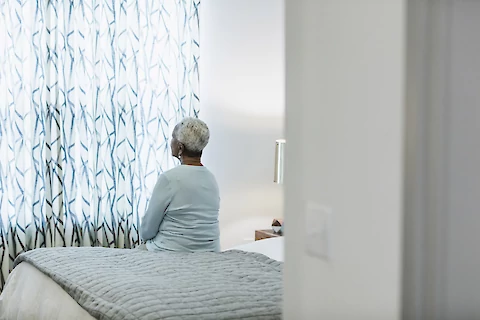
Feelings of loneliness come about through isolation, or perceived isolation, and can wreak havoc on a senior. Everyone wants their loved ones to be with them for as long as they can. One way to increase their quality of life is to be aware of any possible changes in behavior, especially signs of loneliness. Here are hard-to-spot signs of loneliness for seniors you should know.
Loneliness Can Increase Physical and Psychological Problems in Seniors
The quality of a person's mental health has a direct effect on their physical and psychological health. Loneliness is a complex and serious emotion that can affect a person's mental state to such a degree that it can eventually cause dangerous changes inside their bodies, as well as their minds. Examples of physical and psychological problems include:
Physical Problems
- Increased risk of cardiovascular problems, heart attacks, and strokes.
- Cognitive decline due to an unstimulated mind.
- They may have lost members of their social circle and have isolated themselves from others by staying in their homes.
- Retirement is another event that can cause them to feel lonely.
- Appetite can increase or decrease, leading to depression.
Psychological Problems
- Increased feelings of depression and anxiety.
- Increased daydreaming and detachment.
- Developing the feeling of being a 'burden' on the people who care for them.
- Experiencing a lack of freedom when they are no longer able to drive and shop for themselves.
- Large and sudden changes, such as a change in residence, can negatively affect their ability to communicate and their level of trust in reality.
- A person may start developing symptoms of dementia, which can be confusing.
An effective way to discover if your loved one is suffering from loneliness is to learn the signs and distinct behaviors that occur in seniors specifically.
Sometimes, many of the symptoms can be explained away or blamed on another condition. So, what are the hard-to-spot signs of loneliness for seniors in Hillsborough County?
Hard-to-Spot Signs of Loneliness for Seniors
Loneliness is a state of mind that can occur even when someone is surrounded by a group of people. Sometimes the emotions are even stronger when others are around because it may seem like people are choosing not to engage with them when that is most likely not the case.
- dramatic weight loss or gain
- increase of depressive symptoms
- increase of anxiety and paranoia
- an increased neediness
- memory deterioration that is not based wholly on dementia
- loss of focus/ inability to pay attention
- a noticeable decrease in a person's hygiene routines
- giving up on hobbies they used to love
- loss of purpose and motivation
- increased aggression, lack of self-esteem
Loneliness and isolation of any kind can exacerbate physical issues, bring them to the surface, or create new ones. It can also increase a person's risk of dementia by 50%. Depression, and even suicide, can become a concern. Early deaths are possible. Therefore, we should work with our senior loved ones to determine what we can do to decrease their loneliness.
How Can We Help Our Seniors if They Feel Lonely?
Intervening may be a necessary action when our beloved seniors act out or express their loneliness. We can help our seniors feel less lonely by encouraging them to join social clubs, book clubs, or even a golf league. Socializing and making new friends is a great way to temper loneliness.
Perhaps they have a favorite church they would like to visit again. Maybe they want to spend more quality time with their friends and family. Companion care in their own home can be a tremendous help. They can act as a confidant and a friend while helping seniors complete activities and chores.
Contact Senior Helpers of Hillsborough County to Age Gracefully at Home
Senior Helpers of Hillsborough County currently offers services in Sun City Center, Riverview, Brandon, Valrico, Tampa, and Lithia. Our companions are excellent listeners and conversationalists. They can run errands, do light chores, as well as accompany the seniors for activities to keep them engaged.
Contact us for a free in-home consultation and review of needs.